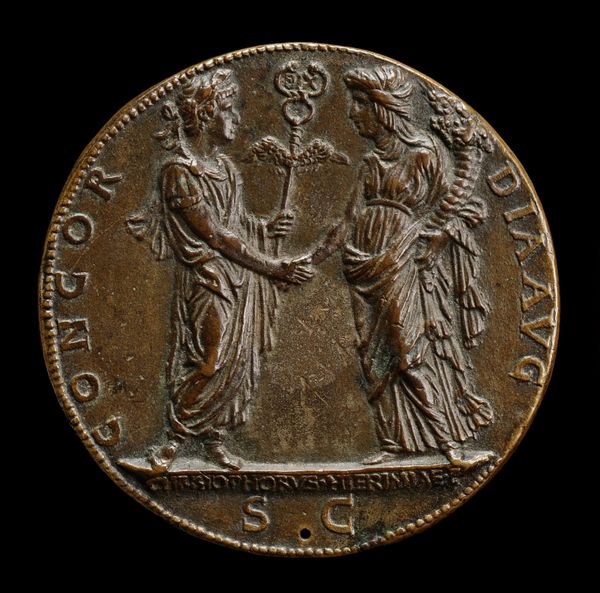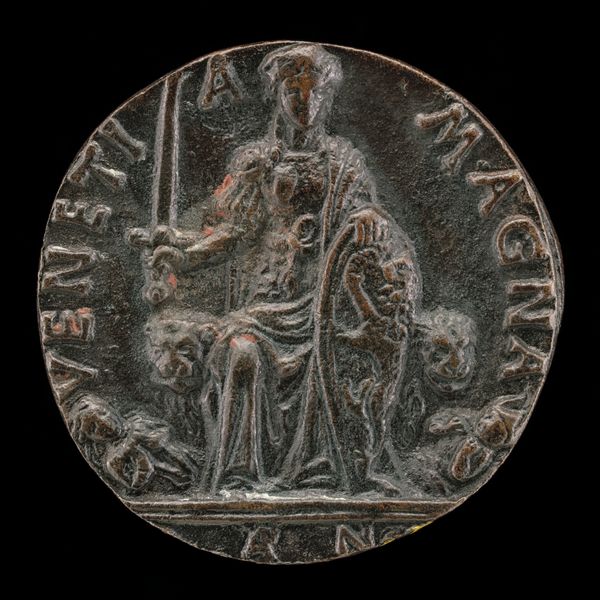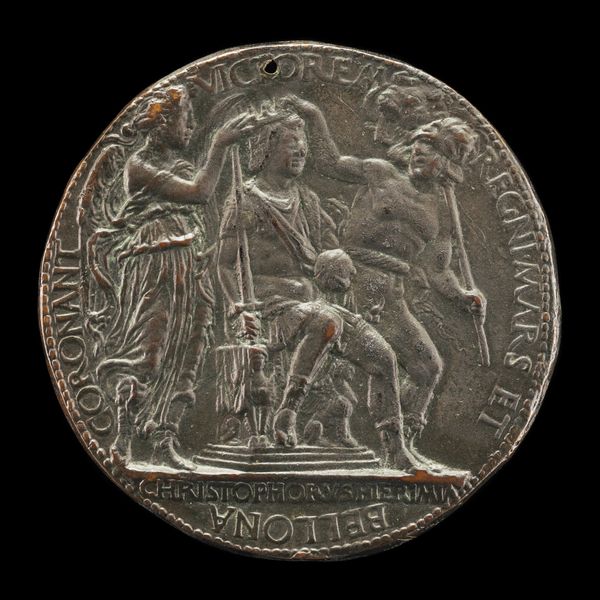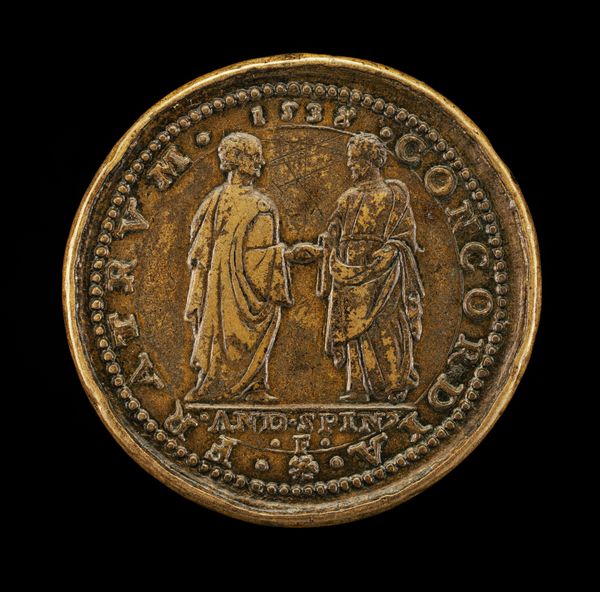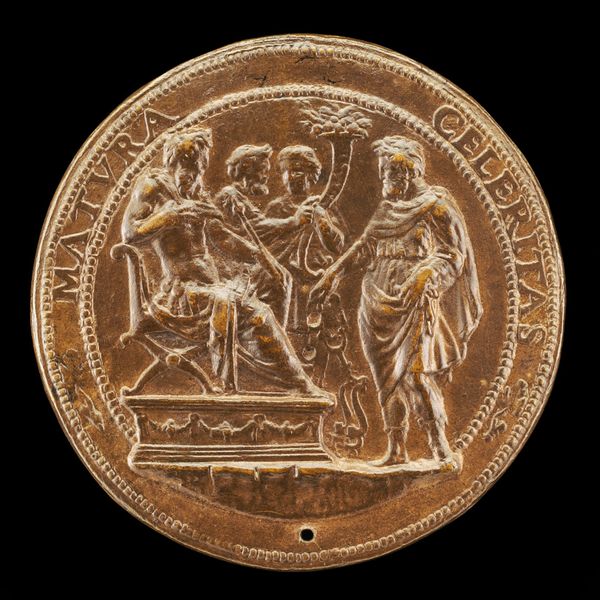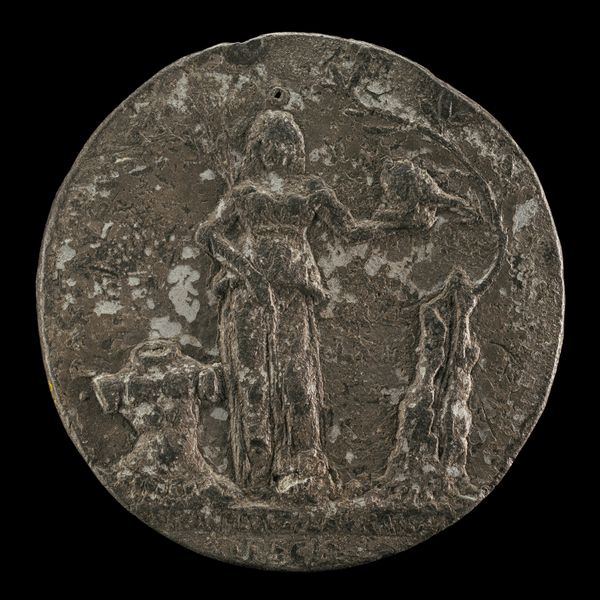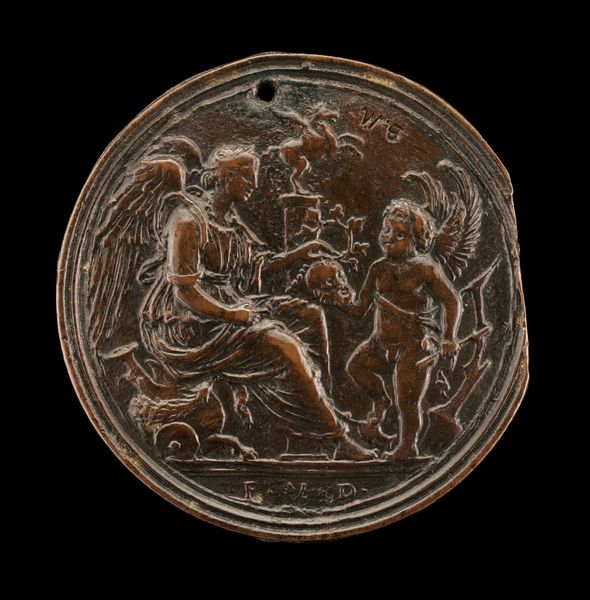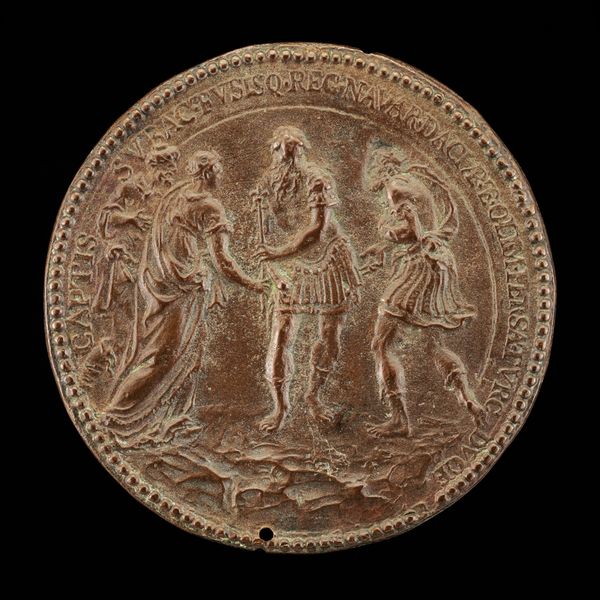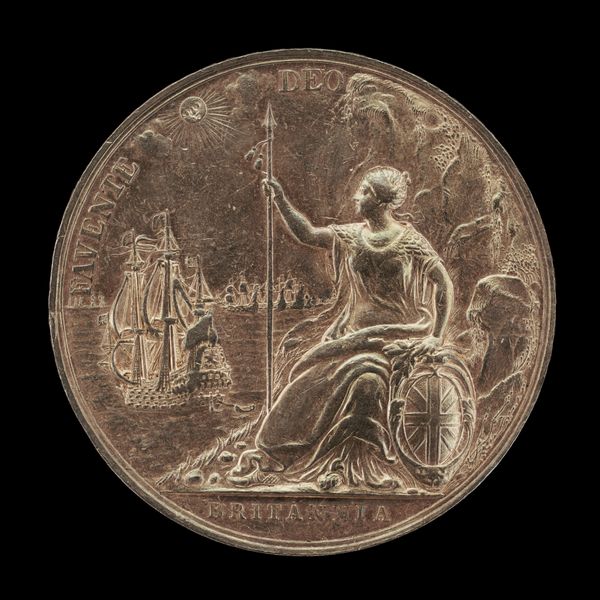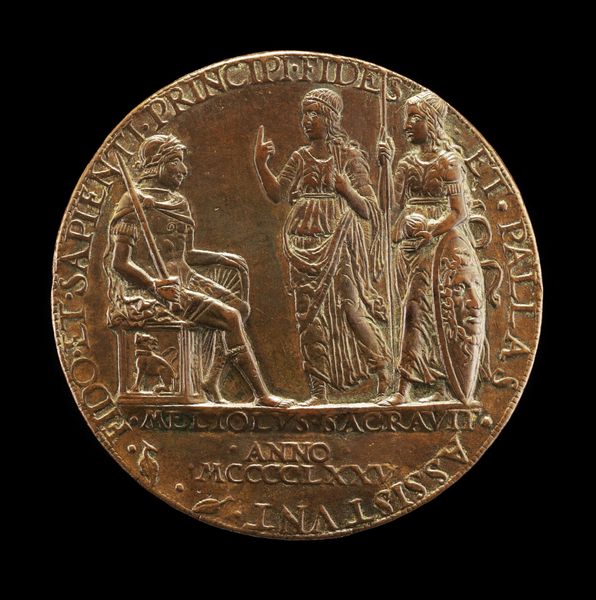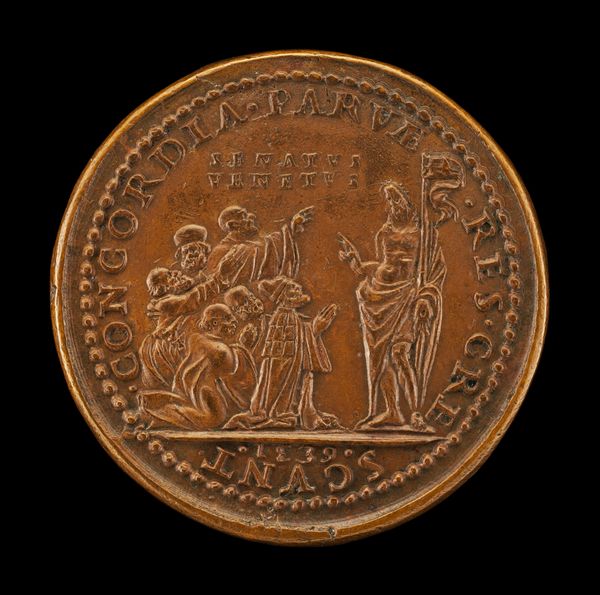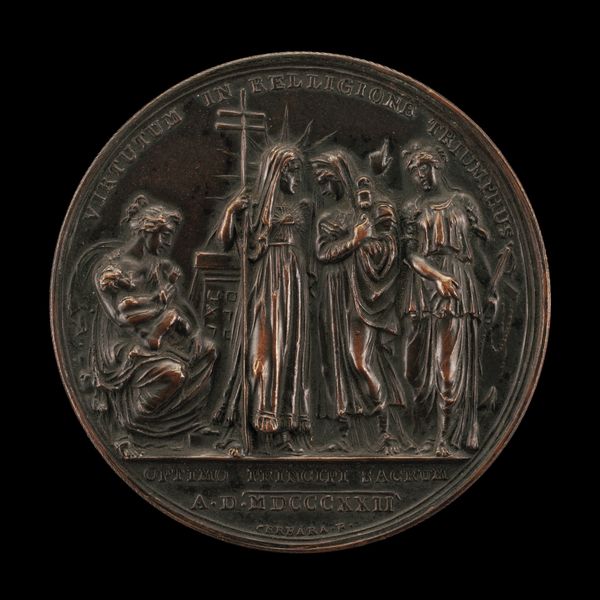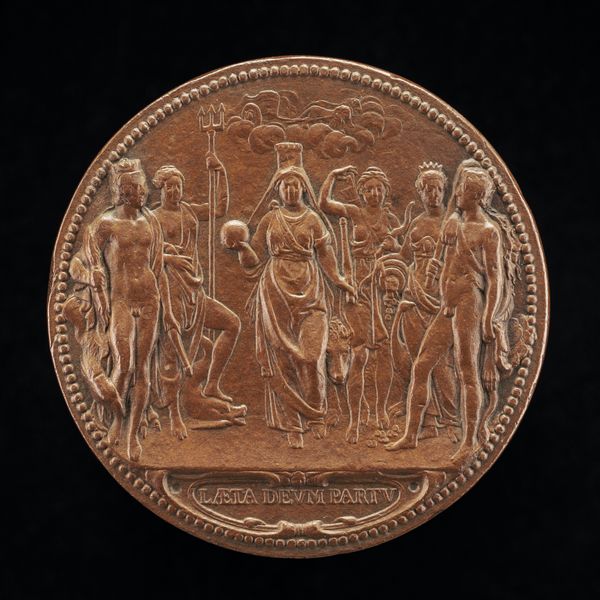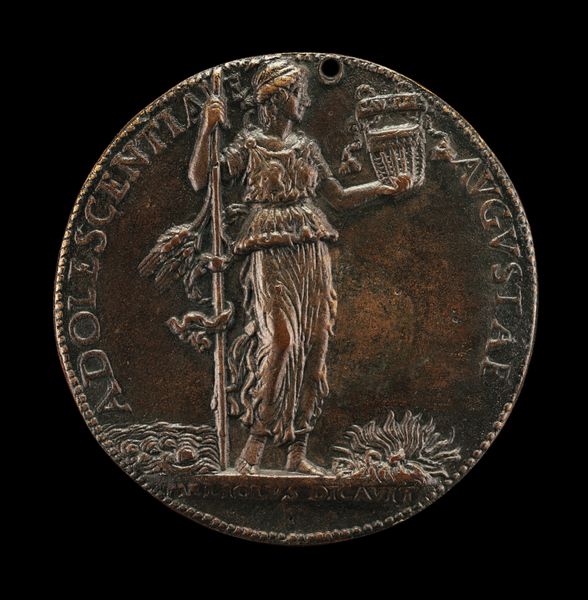
metal, relief, sculpture
#
portrait
#
metal
#
stone
#
sculpture
#
detailed texture
#
relief
#
sculptural image
#
figuration
#
sculpture
#
history-painting
#
italian-renaissance
Dimensions: overall (diameter): 2.88 cm (1 1/8 in.) gross weight: 8.24 gr (0.018 lb.) axis: 3:00
Copyright: National Gallery of Art: CC0 1.0
Editor: Here we have a metal relief sculpture dating sometime between 1500 and 1571, entitled "Saint Cosmas and Saint Damian" by Benvenuto Cellini. The figures look rather stoic. What can you tell me about it? Curator: What I see here is a fascinating example of how religious iconography can intersect with humanist ideals during the Renaissance. How might viewing these figures, not just as saints but as historical agents, change our understanding of the artwork? Consider also how medicine itself becomes a site of power and knowledge. Editor: I hadn’t thought about that, it's like these figures embodied power beyond just the religious sphere. Curator: Exactly! We must consider the socio-political climate of the time. Patronage, for instance, played a huge role. Who commissioned this piece, and what was their agenda? And how does this representation of male saints play into contemporary theories around gender and power dynamics? Do they uphold existing patriarchal structures or offer subtle resistance? Editor: That’s really interesting to consider their positionality in society. It makes me consider if the detailed texture suggests their importance? Curator: That's a keen observation! And it begs the question: who gets remembered, and how are they memorialized? Considering Cellini's own tumultuous life and his relationship to the Medici family, could this piece also be read as a statement about artistic authority and self-preservation? How can this relief be considered a form of historical documentation? Editor: That is insightful. I’m not sure I would have noticed the visual clues without thinking about who the patrons may have been or gender constructs. Curator: Precisely. By asking these critical questions, we challenge the traditional art historical narrative and create space for diverse interpretations that speak to our present moment. Editor: It certainly gives me a lot to think about! Curator: And hopefully, prompts further inquiry into the stories art can tell when viewed through a critical lens.
Comments
No comments
Be the first to comment and join the conversation on the ultimate creative platform.
